“Twenty-four hours without any food or water.”
Mikaela Robinson
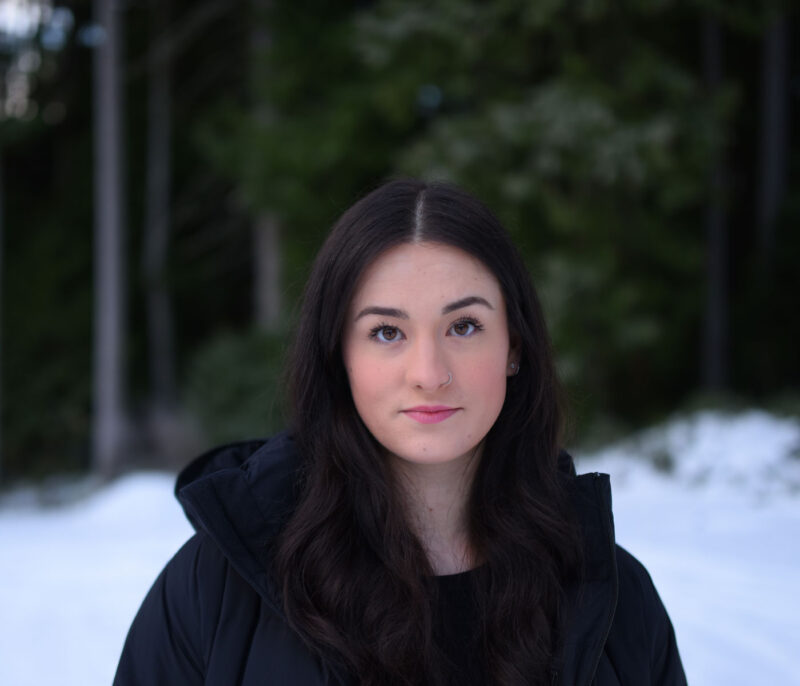
Mikaela grew up in the small harbour city of Nanaimo, where she lived with her parents, and two sisters.
As a child, she danced competitively, in styles ranging from contemporary and lyrical to jazz and ballet. This led to her interest in kinesiology, which she studies at the University of British Columbia. Recently graduated, Mikaela plans to continue her studies in physiotherapy school.
In 2021, when the atmospheric rivers flooded Southern BC, Mikaela had just finished spending her reading break visiting her twin sister in Kelowna. She was aboard a bus, making the five-hour trip home to Vancouver.
I had no troubles on the way there. On the way back I probably should have checked the weather before travelling. I should have noticed there was a storm coming and maybe chosen to take a flight or just delay my travels. But I had already got up to Kelowna and I needed to get back to go to my classes after reading break.
I was so stressed out for my midterm. I remember having the one light on above me in the bus, writing away on my computer. It was pouring rain. I was thinking, “Oh, it’ll pass. We’ll get home for supper.” On the way back is when the storm hit.
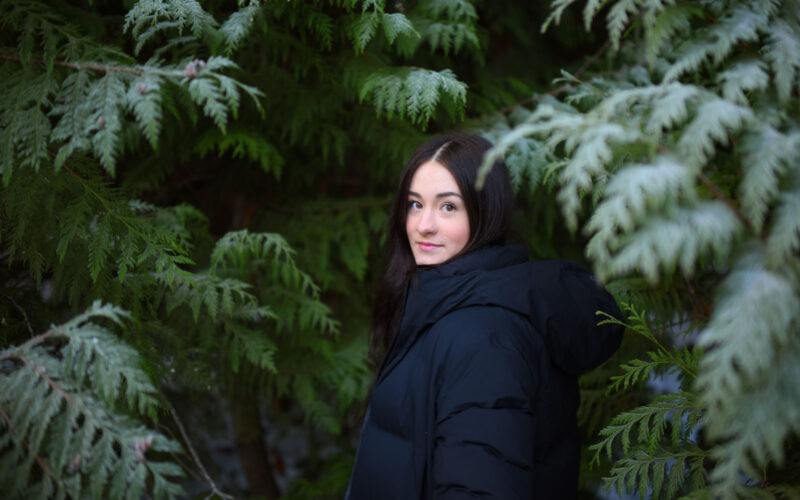
Mikaela Robinson is a kinesiology student at the University of British Columbia. (CDP Photo/Phil McLachlan)
We first went to the Coquihalla. That’s when we heard the first mudslide had closed that. So, we stayed at a deadstop on the Coquihalla for an hour or two. Then we turned back to go to Merritt, to take a different highway, the Crowsnest. It was very slow traffic.
My dad told me to send my location. I sent it to him. Based on the location, from what he had heard, I was in the middle of the mudslide. That really worried him. Being able to not directly help your kid is traumatic.
We drove through Princeton. Stand still again. There were two mudslides up ahead of us that locked in a lot of cars. Luckily, we were outside of that. Everyone was rerouted to Hope. It was very slow.
The bus pulled into a parking lot and we just sat there. I got stuck in Hope. I was travelling alone. I didn’t know anyone from Hope and I didn’t really have a view of it because I had never been there. I always pictured Hope as a rest stop on the way to Kelowna.
I ran out of food and water. Twenty-four hours without any food or water.
The whole place had no power. It was dark. I just tried to go to sleep. I didn’t want to think about where I was anymore or what was going to happen. I would wake up to the dark images of people on the bus. It was scary. A reminder of the situation I was in.
Once they had power, someone on our bus was super generous. They got off and went to 7-11 and bought a flat of water. I thought they were some search and rescue person coming in. Then, I found out it was another person on the bus who just wanted to take their time and money to buy a flat of water for everyone. Around 9am, the bus went to the secondary school. There were a lot of people who were stuck in their cars. There were a lot of buses there as well.
When we got there, volunteers were still setting up. They had very limited food. Some snacks, coffee, tea. I had a midterm on Tuesday. So I set up my little study space, a desk in a multi-purpose room. I was studying away, trying to distract myself from what was going on and to feel productive in some manner. There were no updates on the highway. We knew we weren’t going to get out that night.
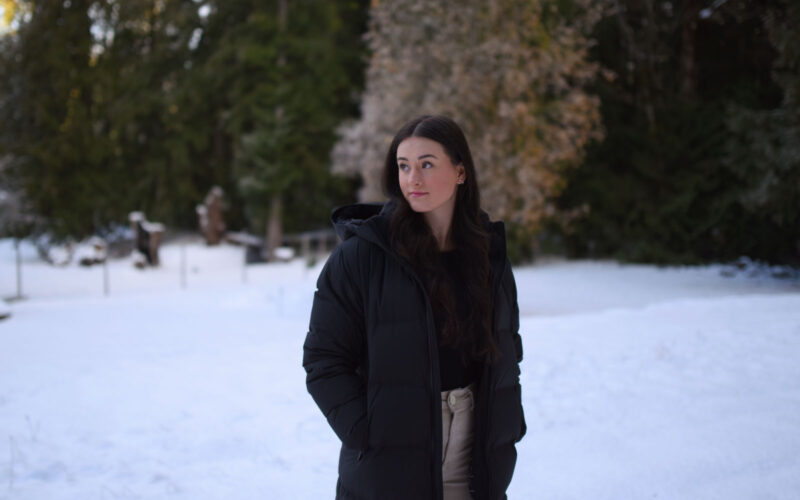
Mikaela Robinson was stranded in Hope during the 2021 atmospheric rivers that flooded southern British Columbia. (CDP Photo/Phil McLachlan)
The staff of the school and the volunteers from the community came together to provide us food and shelter. I know they tried really hard to fly in cots and bedding but that fell through. They had those blue mats they have in schools, but no cots, blankets, or pillows.
I tried to walk around to source out something, but there were a lot of families and older people and I felt like I didn’t deserve to take away a mat or a blanket from someone who might be more deserving of it. I took my big puffer jacket, zipped it up, and used my backpack as a pillow. I remember shivering in my jacket and not having the best sleep.
When I saw the families I was a little bit envious, because having someone with you would be really reassuring.
At one point I was FaceTiming my mom on the brink of tears because I was alone. Mentally, it was tough. Being there alone. Not knowing when I could go home.
There were a lot of residents of Hope asking for ways they could help. I think they felt pretty helpless. They wanted to do something. If they couldn’t donate their time, they wanted to donate something else. Lots of people with open spare bedrooms reached out, phoning the school saying they have a room or a bed if someone needs it.
One of the counsellors reached out to two of the friends that I met in the high school. I remember watching Netflix with them and playing some board games the night before to lift our spirits. I think us coming together really improved our situation. The counsellors said a family would love to house us. We were excited and grateful because the night before we just slept on the ground. That was very generous of them to open up their home to three strangers they had never met before. I think they rent it out as an Airbnb that is honestly nicer than my apartment.
They had a huge rain shower. They had a whole kitchen set up and TV. They were like, “Oh, here’s the WiFi.” In the school, there was no WiFi so I had a hard time connecting with people who were reaching out to me, making sure I was okay. It was nice to respond to all my messages and keep my teachers in the loop. I had to email some of them to get assignment extensions. That was calming mentally to know that I was able to respond to people if they were worried.
On the last day, there was a train that came and transported us all back to Vancouver. I struggled to get back into a routine of classes. I spent a lot of time reflecting on the experience.
Honestly, I’m grateful that it happened in Hope. I think in a bigger city, there would be the diffusion of responsibility.
I think small towns have greater connectivity. There’s more people who know each other so they’re more likely to band together and help rather than think “Oh, there’s enough resources. We don’t really need to do anything drastic to help them. People will find their way.” It was probably better that it happened in a smaller city.
I have a renewed respect for myself that I had the mental capacity and strength to be there alone. That was good for me to know that when I’m in a situation like that, I do have the power to get through it and still bounce back. I’m resilient enough to get through it. I was honestly surprised I was able to get out of my comfort zone, talk to people, and make new friends.
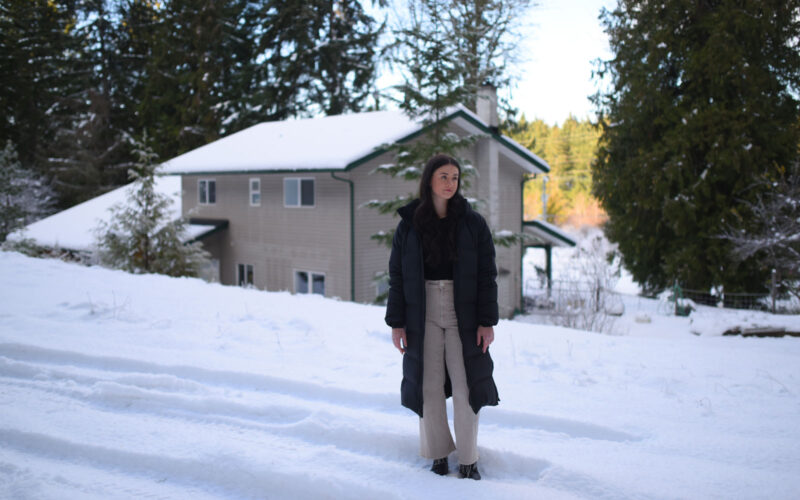
Mikaela Robinson said the experience of being stranded during the 2021 southern British Columbia floods made her think about how climate change is impacting her. (CDP Photo/Phil McLachlan)
I think experiencing something like this is very telling of the situation we’re in right now in terms of climate change. Seeing how I was part of it. It does impact me. I should put more time into educating myself. It definitely was a wake up call.
We’ve been experiencing the impacts of climate change for many years now. But when you don’t experience the first-hand effects, it’s easy to think, “I’m just one person. It’ll be fine.” So to be in a situation where your life could be in danger and you don’t know what’s gonna happen, that’s a whole different experience that opens your eyes to the situation we’re in and what we can do moving forward. Or if there’s even something that we can do. That’s what I get anxious about. Is it too late? Because we’re already experiencing these mass disasters. How can I, one person, do things when there’s so much of a bigger problem with corporations, greenhouse gas emissions.
I think it has to be a community, nationwide, and worldwide effort. Increasing education about the effects of climate change and how we can do little things ourselves that will have a greater effect, even if it doesn’t seem like it. We’ve reached a point of no return in terms of climate change, but that doesn’t mean we shouldn’t give up. We should still be very aware of the effects. And still do everything in our power to reverse what we’ve already damaged.
This testimony was originally published in The Fraser Valley Current, on December 21, 2022.
Related Stories
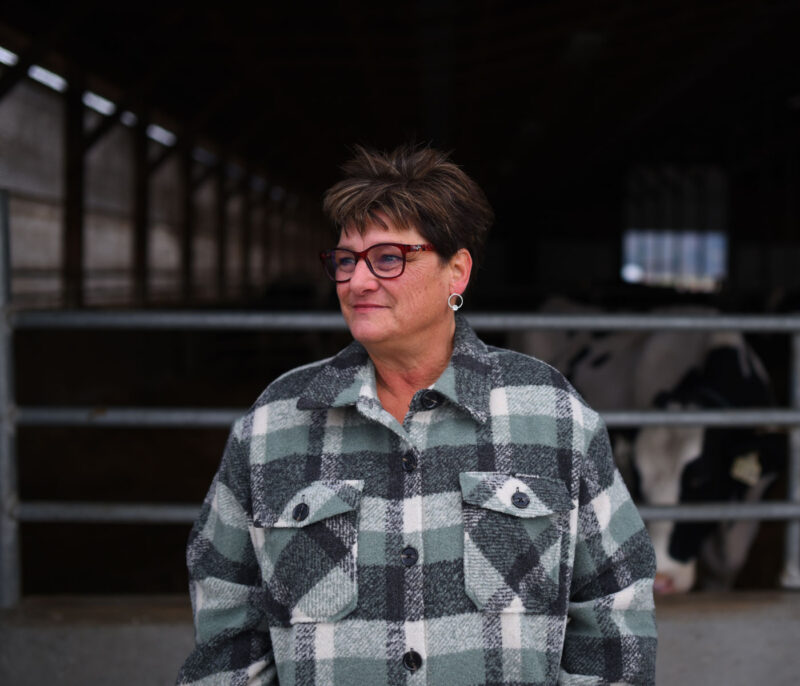
Alison Arends, Sumas Prairie, Canada
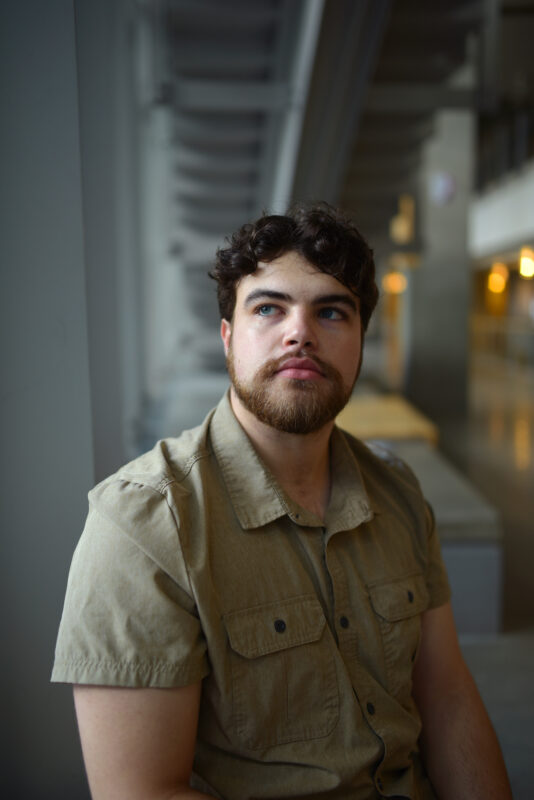
Gage Smith, Chilliwack, Canada
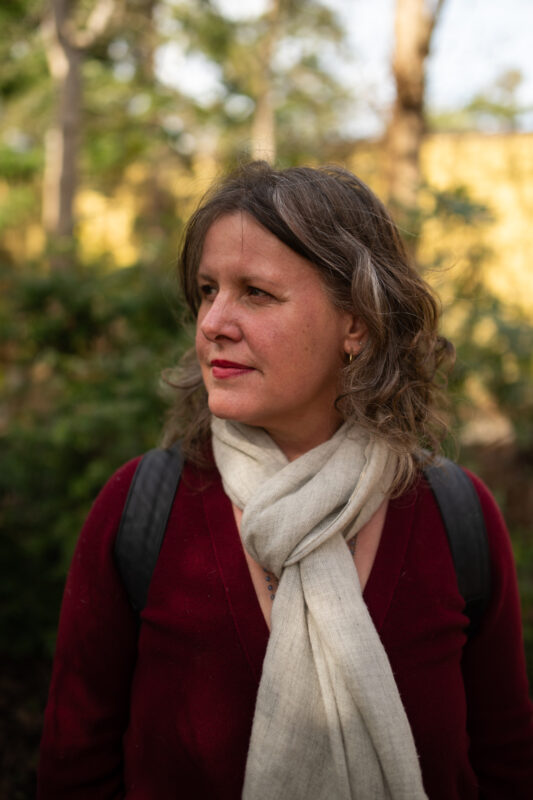
Sandy Ibrahim, Victoria, Canada